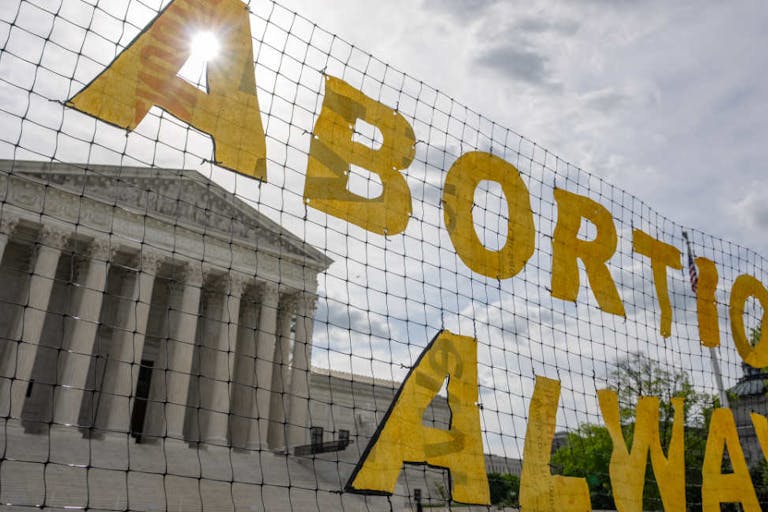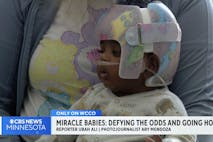
A growing number of Americans call themselves ‘pro-choice’ – but what’s really behind it?
Nancy Flanders
·
Shock report: Prenatal testing company in China harvested data without consent
A shocking new report from Reuters has uncovered that a company in China with military affiliations has been harvesting data from its leading non-invasive prenatal test (NIPT) from unsuspecting women worldwide.
The Nifty (“Non-Invasive Fetal TrisomY”) NIPT, developed by the BGI Group, began as a collaboration with the communist nation’s People’s Liberation Army (PLA) of China as a way, according to the report, to improve “population quality.” The report alleges that BGI Group has been harvesting “genetic data from millions of women for sweeping research on the traits of populations,” and claims China has been using the data to gain strategic economic and military advantages.
Reuters wrote, “The technology could propel China to dominate global pharmaceuticals, and also potentially lead to genetically enhanced soldiers, or engineered pathogens to target the U.S. population or food supply.”
Additionally, the report claims Chinese scientists used data harvested by BGI Group to trace genetic distinctions between Han Chinese and persecuted ethnic minorities, like Uighurs and Tibetans. The report found that Chinese scientists were specifically able to map how genetic variations in Uighurs affected their reaction to different kinds of drugs, which is ominous in light of the ongoing Uighur genocide.
READ: China unveils ‘three-child policy,’ but coercive population control continues
The Nifty test, originally marketed in 2013, has become a global leader in NIPTs. Although the tests are not yet sold in the United States, millions of women in 50 countries worldwide — including 13 European Union countries, as well as Britain, Canada, Australia, Thailand, India, and Pakistan — use the Nifty test to detect genetic conditions, like Down syndrome, early in pregnancy. More than eight million women worldwide have taken the test to date.
Article continues below
Dear Reader,
In 2026, Live Action is heading straight where the battle is fiercest: college campuses.
We have a bold initiative to establish 100 Live Action campus chapters within the next year, and your partnership will make it a success!
Your support today will help train and equip young leaders, bring Live Action’s educational content into academic environments, host on-campus events and debates, and empower students to challenge the pro-abortion status quo with truth and compassion.
Invest in pro-life grassroots outreach and cultural formation with your DOUBLED year-end gift!
Previously known as Beijing Genomics Institute, BGI Group was originally founded in 1999 ostensibly to participate in the Human Genome Project, an international collaborative research project which concluded in 2003.
According to Reuters, the investigation’s findings corroborate a March government report by the U.S. National Security Commission on Artificial Intelligence (NSCAI) that argued the “United States should recognize China’s strides towards global leadership in biotechnology and AI as a new kind of national security threat.”
In a statement, BGI group rejected the report’s findings, saying, “Assertions that BGI is motivated by anything other than the advancement of health outcomes are both deeply disappointing and factually incorrect.” The BGI group also claimed that “DNA data collected from prenatal tests on women outside China are not stored in China’s gene bank,” but that “all NIPT data collected overseas are stored in BGI’s laboratory in Hong Kong and are destroyed after five years.” The distinction raises questions since Hong Kong, although nominally a special autonomous region, has been increasingly subsumed under mainland control in recent years.
The extent of the data usage and violations remain unknown as recent changes to Chinese law have restricted the ability for foreign researchers to gain access to Chinese genomic data. Dr. Rasmus Nielsen, UC Berkeley biology professor who used to advise the firm on genetic mapping and data exploitation, stopped working with BGI Group in 2018 due to the new Chinese government’s new restrictions. “Things are really changing in China,” Nielsen said, according to Reuters. “Science used to be free.”
“Like” Live Action News on Facebook for more pro-life news and commentary!
Live Action News is pro-life news and commentary from a pro-life perspective.
Contact editor@liveaction.org for questions, corrections, or if you are seeking permission to reprint any Live Action News content.
Guest Articles: To submit a guest article to Live Action News, email editor@liveaction.org with an attached Word document of 800-1000 words. Please also attach any photos relevant to your submission if applicable. If your submission is accepted for publication, you will be notified within three weeks. Guest articles are not compensated (see our Open License Agreement). Thank you for your interest in Live Action News!

Nancy Flanders
·
Activism
Angeline Tan
·
Human Rights
Bridget Sielicki
·
International
Cassy Cooke
·
International
Bridget Sielicki
·
International
Angeline Tan
·
Human Interest
Laura Nicole
·
Human Interest
Laura Nicole
·
Newsbreak
Laura Nicole
·
Human Interest
Laura Nicole
·
Human Interest
Laura Nicole
·